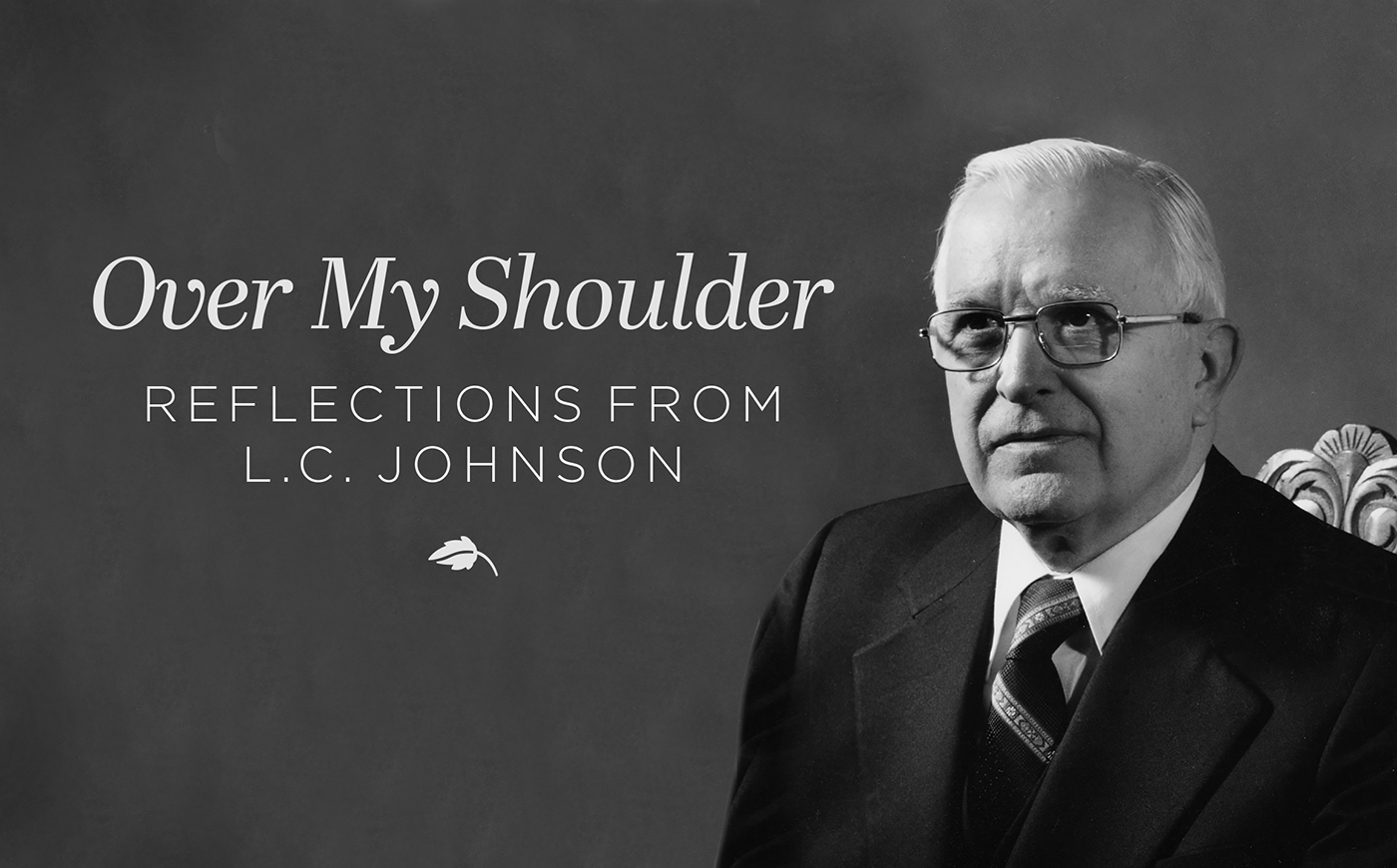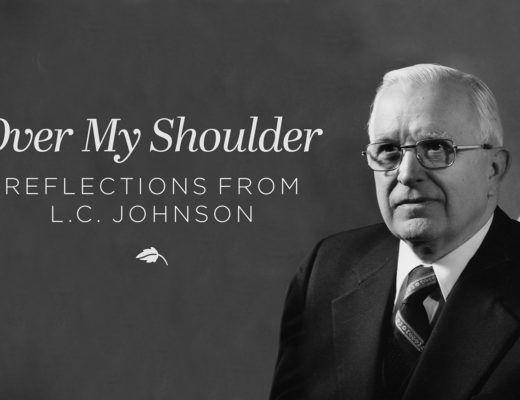Part 2: Road to the Beginning
Editorial Note: As the late Dr. L.C. Johnson prepared to step down from his long tenure as president of Welch College (then Free Will Baptist Bible College), Contact magazine asked him to write a five-part series of articles. In these short accounts, Johnson traced God’s hand in forming, building, and keeping the denominational college.
A spirit of denominational hopefulness in the 1930s had to be translated into a program leading to the establishment of a denominational educational program to produce leadership for our churches.
God gave us certain individuals — I will only name a few to illustrate — so dedicated to the cause of Christian education they were willing to make tremendous sacrifices for it: J.R. Davidson of Georgia, James F. Miller of Missouri, Melvin Bingham of Oklahoma, George Dunbar and J. L. Welch of Tennessee, and L. R. Ennis of North Carolina.
There were others, of course, but these men in particular worked many years to create interest in an educational institution and to develop the belief among our constituency that we could have such an institution.
Portable Bible Institutes
L.R. Ennis a movement to establish portable Bible institutes. These were conducted across the denomination and built on the spirit of hopefulness brought about by the organization of the National Association in 1935. The institutes were two weeks in length but created a profound spirit of enthusiasm. Few men among us had any kind of proper educational degrees to head such an institution, and the few who had degrees were called upon to teach.
Many years later, I learned Ennis enlisted these young men, whatever degree of training, with the purpose of appraising them regarding who might be a good prospect to lead an established, formalized educational program. I was one of the young men Brother Ennis used.
Little did I realize when invited to Tulsa, Oklahoma, for a two-week institute that following the session, Ennis would relate that he thought I should head the establishment of an institution in Nashville, Tennessee. I was literally shocked at the idea, and as far as I can recall, totally dismissed it from my mind as preposterous. I had never considered any kind of educational career. My college training had not prepared me for such a task.
Columbus Vote
Out of these institutes, excitement had grown to a point our elder statesmen felt the time had come to recommend to the National Association that a school be established. This occurred July 1942 in Columbus, Mississippi.
These men of God who had faithfully served on the Board of Christian Education since the formation of the National Association were overwhelmed with emotion when the National Association approved their recommendation to establish Free Will Baptist Bible College.
As young man only 28 years old, I will never forget these brethren calling me into a room to tell me they were convinced I should head the movement. Though I had no convictions of my own to undertake such a task — I had never considered it as a part of my life’s plan — I felt I could not question the judgment of these godly men. I simply could not understand how they could reach this conclusion.
I accepted the responsibility but could only assume my duties in September due to prior commitments. The first day of September 1942, I parked in front of 3609 Richland Avenue, the single building on a 200 x 200 lot, which constituted our entire campus at that time. I walked into an empty building with no desks, no books, and little knowledge about how a school should operate.
Brother L. R. Ennis had handled all correspondence with prospective students, and I knew little of what to expect in the way of enrollment. But early that September, eight or nine students (we have never settled on exactly which) appeared on campus and constituted our first semester student body. Laura Belle Barnard, home on furlough from India, joined me as the other member of the faculty. Henry Melvin, a local pastor, agreed to teach the few courses in music we offered.
Thus, Free Will Baptist Bible College became an actuality. How many questioned whether it could be a successful undertaking, I do not know. But I do know that the this result of the growing spirit of hopefulness was not the end, but must now be translated into a living, thriving reality, the proof that the undertaking could be successful.
L.C. Johnson, president, Free Will Baptist Bible College
(Adapted from Contact magazine, February 1979, page 31.)


